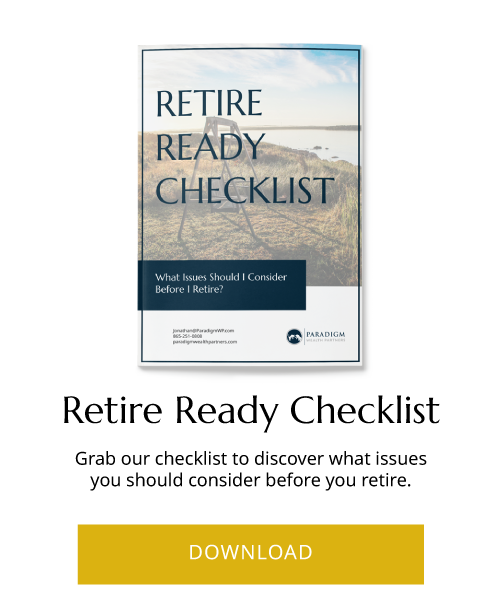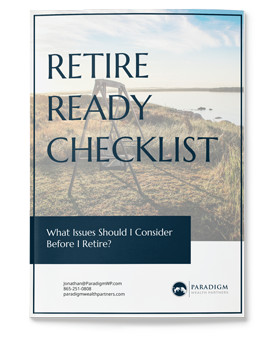5 Common Mistakes People Make When Creating a Financial Plan
A financial plan is your blueprint for things like saving for your children’s education or leaving a legacy. There can be a lot of pieces involved in that blueprint; so be sure you aren’t making these common mistakes.
- Not Saving Early Enough
When it comes to building wealth, the most important component is time. The earlier you start, the more time your money has to grow. The later you start, the more money you’re leaving on the table. It’s hard to make up for that lost time.
If you invested just $100 a month at a conservative 7% return after leaving college at 22, by the time you are ready to retire at 65, your money would look like this:
- Total Contribution: $51,600
- Total Interest: $266,545.02
- End Balance: $319,345.02
Now, let’s double our contribution but half the number of years our money had to grow. That money would look like this:
- Total Contribution: $55,200
- Total Interest: $82,024.01
- End Balance: $139,624.01
Pretty eye-opening isn’t it? When it comes to investing, time can work for or against you.
- Social Security is a Big Part of Your Retirement Plan
The future of Social Security is anything but secure. Here is what a 2019 report from the Social Security Board of Trustees found:
The trust funds that disburse retirement, disability, and other Social Security benefits will be depleted by 2035. That does not mean Social Security will no longer be around; it means the system will exhaust its cash reserves and will be able to pay out only what it takes in year-to-year in Social Security taxes. If this comes to pass, Social Security would be able to pay about 80 percent of the benefits to which retired and disabled workers are entitled.
It’s dangerous to factor Social Security into your retirement plans. At best, it should be something you’ll consider a nice bonus if you get it.
- Not Communicating Your Wishes
Many people fail to consult an attorney while creating an estate plan. If you’ve done that, you are ahead of the curve. But that isn’t enough. Your family needs to be made aware of your wishes and how to contact the attorney who helped you create your estate plan.
Your family needs to know where any relevant financial documents are located. They should also know how to access financial accounts online; meaning someone needs a list of the usernames and passwords to those accounts. When there is a medical emergency or a death, the last thing you want is your family searching through files to find the information they need to carry out your wishes or access cash.
- Not Updating Your Financial Plan
Creating a financial plan isn’t a fly-by-night operation. It’s unlikely that your plan will ever need a total overhaul, but it does need to be tweaked from time to time. Anytime you go through a major life change, get married, have children, get divorced, get remarried, inherit a large sum of money, start a business, or retire- you need to update your financial plan to reflect the changes in your life.
Changes need to include not only updates to your overall financial plan but also naming/updating the guardians for your children and the beneficiaries of your life insurance policies/bank accounts if necessary.
- Not Participating in an Employer-Sponsored Retirement Plan
Not all employers offer retirement investing plans like 401(k)s. Sometimes when they do, the investment choices aren’t great because the fees they’re charging are so high. If your employer does offer good retirement investing options and provides matching (not contributing), you should take advantage of it. Contribute at least enough to get the matching funds. Those matching funds are free money; something you don’t encounter very often and should never refuse!
For young investors, an employer-sponsored retirement plan might be your first experience with investing. This is a good “gateway drug.” They are an easy way to invest. Just simply choose from a few selections offered. For those who struggle to save, this is a great way to “pay yourself first”. The money you contribute is automatically deducted from your paycheck before it’s direct deposited into your bank account. Again, if your employer offers matching funds, this is free money!
We All Make Mistakes
We all make mistakes, financial and otherwise. Are you making any of these common financial planning mistakes? These mistakes all have easy solutions (other than the first, we’ve not yet figured out how to go back in time). If you need help correcting these mistakes or finding others, we’re here to help. We will work closely with you so you can Create the Life You Love™.
Content in this material is for general information only and not intended to provide specific advice or recommendations for any individual. No strategy assures success or protects against loss. Investing involves risk including loss of principal.
The hypothetical examples provided are not representative of any specific situation. Your results will vary. The hypothetical rates of return used do not reflect the deduction of fees and charges inherent to investing.



